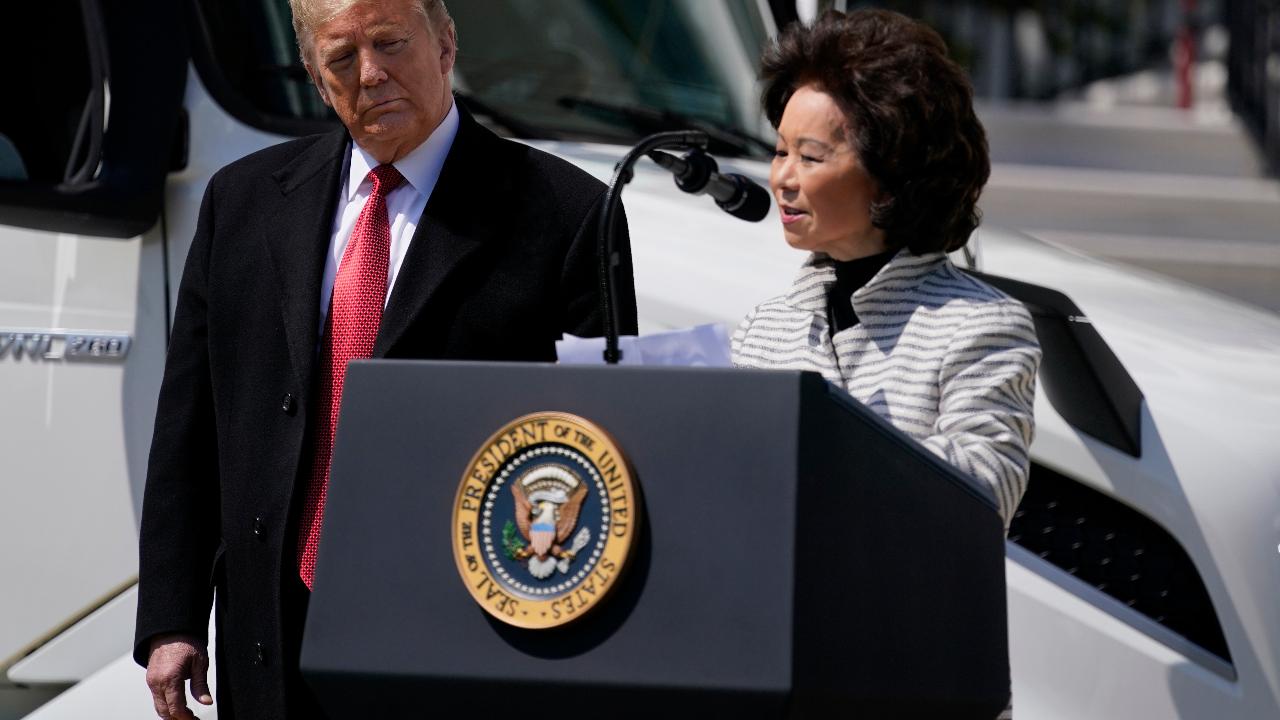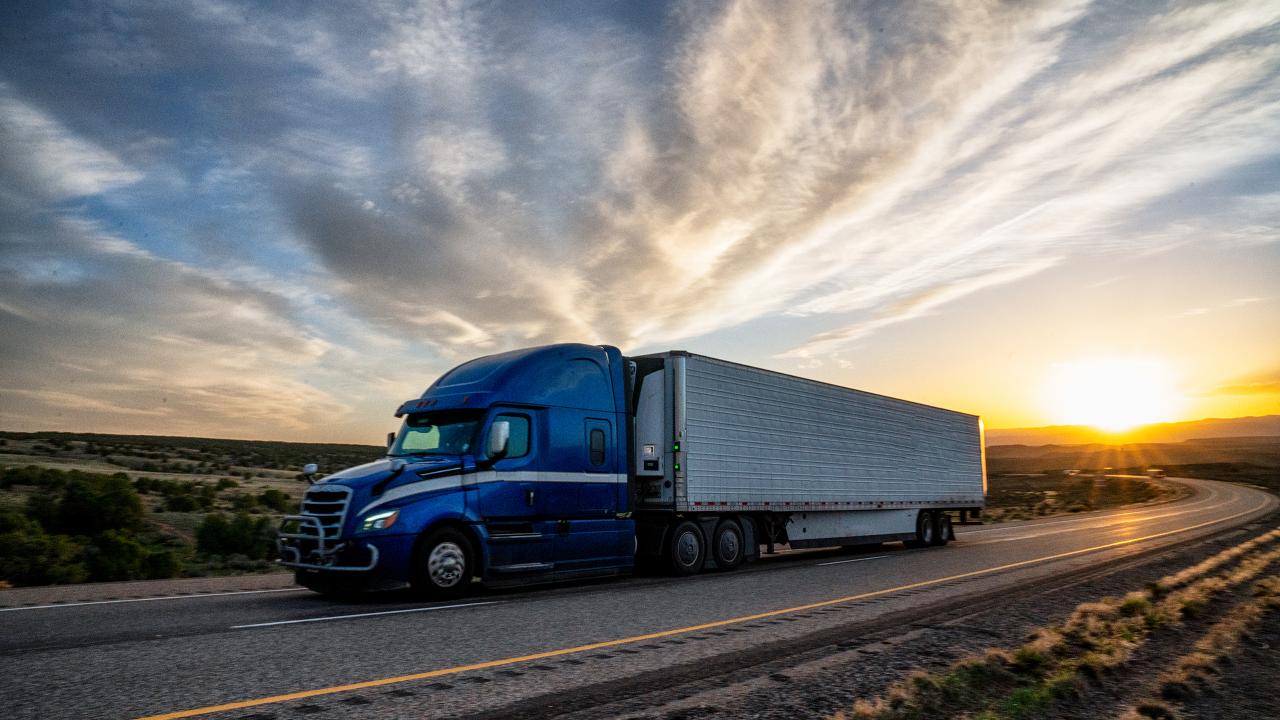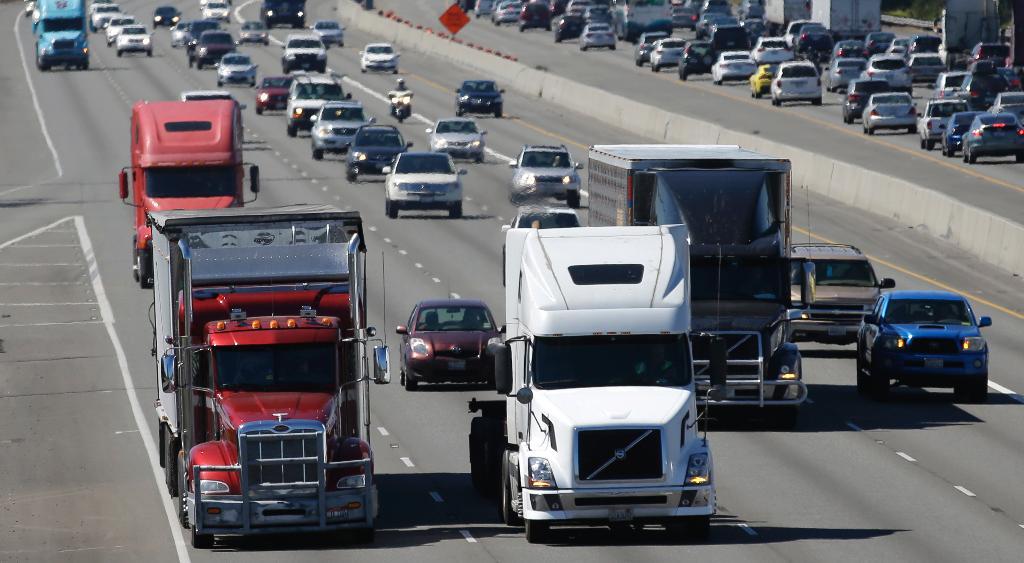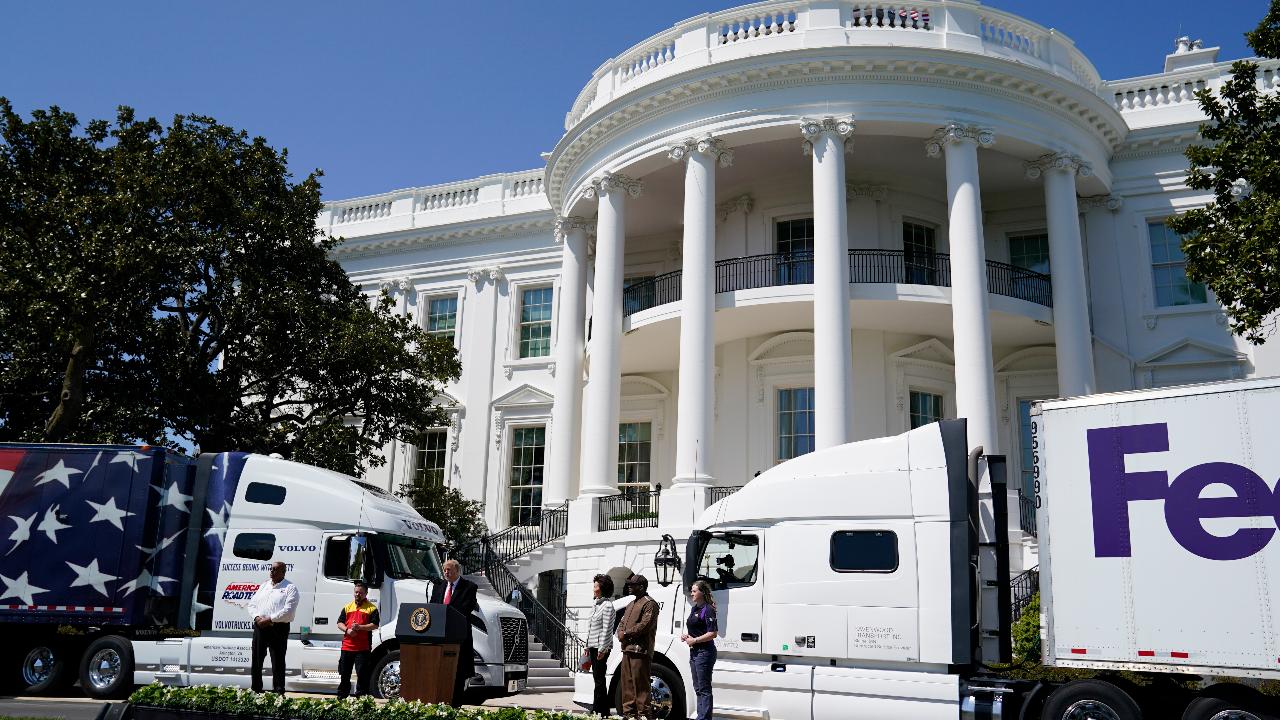Truckers in coronavirus crisis finally get hot meals and lots of special interests hate it
Why do states like Michigan remain stuck in a system during coronavirus that serves neither consumers nor small business owners trying to get by?
Get all the latest news on coronavirus and more delivered daily to your inbox. Sign up here.
Michigan food truck owners Angie Werner and Doug Hussett did not mean to create a police incident. They just wanted to help the long-haul truckers at the forefront of keeping the country up and running as the coronavirus crisis batters the state.
The business partners tried for days to find out whether their food truck, The Meat Guy's BBQ Shack, would be allowed to operate at nearby rest stops, where the restaurants are closed. After going all the way up the ladder at the Michigan Department of Transportation and getting no clarity, they asked rest stop managers if they could set up.
MASTERCARD SAYS TOUCHLESS TRANSACTIONS SPIKED AMID CORONAVIRUS WORRIES
One of them, at the Michigan Welcome Center, said yes, so they drove their truck there on March 25. The food was a hit. "A nearby vending machine offered ice cream, candy, chips and pop," Doug said. "But if you wanted a hot meal, it was just us."
Some of the people they served were so grateful, they even gave extra tips and donations just to thank them for being there. But after just a few hours, the vending machine owner showed up and called the state police.
Doug says the officers who responded were sheepish. One even told him: "I don’t want to tell you to leave, but I have to tell you."
The eviction was inevitable. Rest areas have long been off-limits to food trucks. But in recent weeks, some states have moved to better serve some of the country’s most essential workers, while others like Michigan remain stuck in a system that serves neither consumers nor small business owners trying to get by.
Meanwhile, special interests are determined to stamp out any new opportunities as soon as possible. At the beginning of April, the Federal Highway Administration suspended rules that keep states from allowing food trucks at rest areas. States including Arkansas, Florida, Indiana, Ohio and Connecticut have moved to allow food trucks at certain rest stops. Most recently, California joined the list.
Operators taking their business to these areas still must follow a web of regulations. For example, a temporary permit in Ohio mandates that operators cannot sell anything that might be available in a vending machine, cannot advertise their location, and must park in car spots—often far away from where truckers park.
Government agents who use their power to protect special interests usually hide their true motives. But the Ohio order explicitly says its intention “to support the existing on-premise vending operations.”
Still, during the rest of the coronavirus lockdown, drivers will have better luck finding hot meals from food truck owners like Jeff and Korey Annis, the father-and-son team that operates Reel Smoke Fast Casual Seafood near Columbus. Lingering protectionism means that customers who get a lobster roll or crab jalapeño popper from Reel Smoke will have to walk across the parking lot to get soda or water from a vending machine. But at least truckers will have options.
AMAZON EXTENDING CORONAVIRUS PAY BUMP THROUGH MAY 16
Unsurprisingly, industry insiders are not happy. A collection of 11 groups representing convenience stores, gas stations and restaurants recently urged the Federal Highway Administration to commit not to expand its non-enforcement guidance and, once the crisis passes, to revert to enforcing the long-standing ban.
“They don’t want any competition,” Doug said of those trying to keep him and his fellow business owners away from rest stops. “They don’t care if truckers can’t get a hot meal.”
The Owner-Operator Independent Drivers Association agrees. It suggests rest stop vending companies and others are “fighting even temporary support for truckers in getting the meals they desperately need and are struggling to find while on the road.”
Of course, truckers’ needs are nothing new. Limited options at truck stops are a known issue, as the independent drivers association points out in a recent letter to Congress, and these issues will not go away when coronavirus threat fades.
GET FOX BUSINESS ON THE GO BY CLICKING HERE
In many places, finding a hot meal is next to impossible, and insiders say it contributes to issues like trucker burnout.
At a time when keeping the nation’s supply chain operational is more important than ever, legislators and regulators should pay attention to these problems and the practical options they have for alleviating them.
During the crisis, states like Michigan might look to successful programs in other states and take advantage of the opportunity to try something new: Letting the free market and small business owners meet customers’ needs.
After the crisis passes, regulators should think long and hard about the wisdom of moving backward into protectionism instead of forward into a system where businesses can fill a very real need—if only they can park and stay.
Rebekah Bydlak is an activism manager at the Institute for Justice, a public interest law firm that litigates and lobbies to increase economic liberty for entrepreneurs including for food truck operators across the country.























